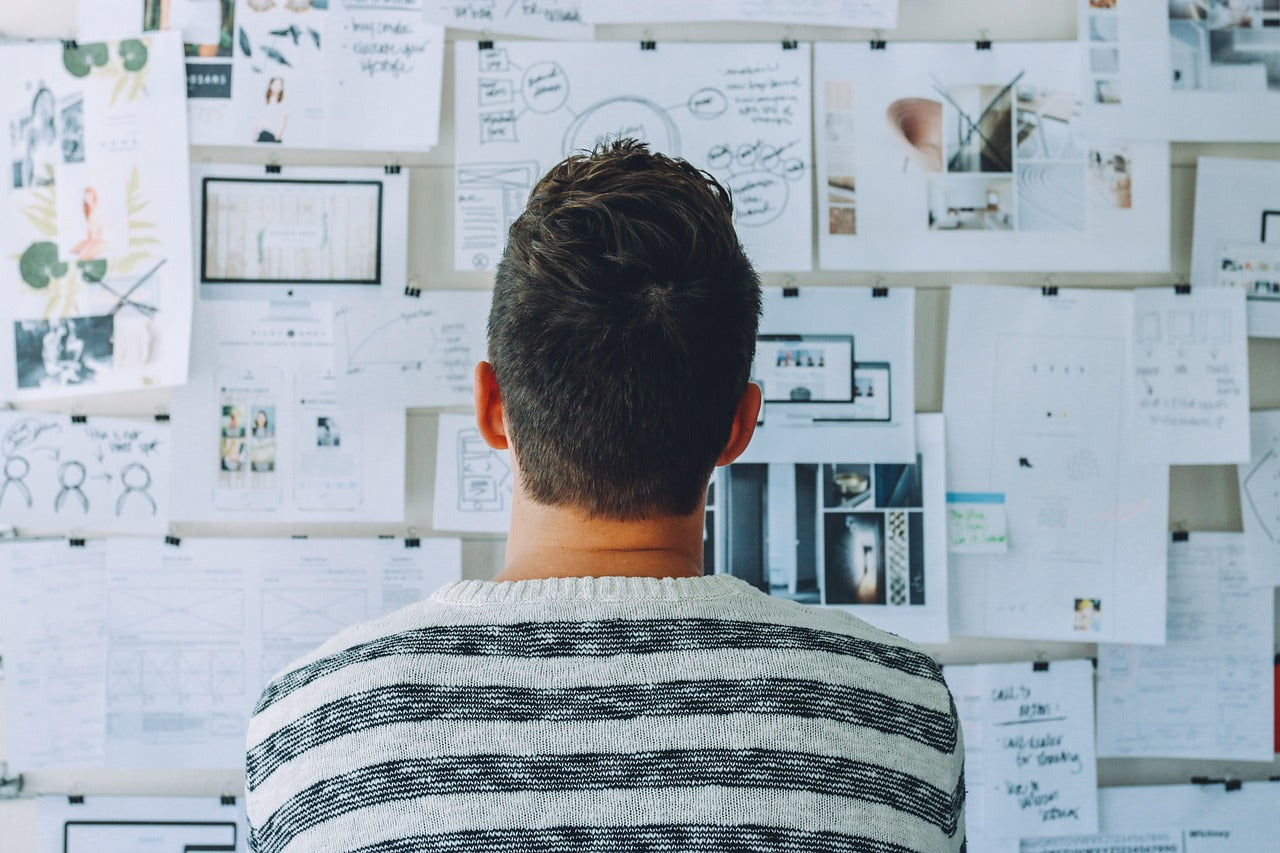Free U.S. Shipping On Orders Over $150

The Link Between Sleep and Productivity: How to Boost Performance
Posted on
My most productive days are when I have had a solid 8 hours of sleep. A good night’s sleep works wonders for focus, concentration, creativity and overall mental energy.
So what’s the link between sleep and productivity and what happens if you don't get in your 8 hours of sleep?
Understanding how sleep affects your productivity and mental performance is crucial for your career, school work or business success.
The Science of Sleep and Productivity: What Sleep Does To Your Brain
When you go to bed, your brain doesn't spend the entire night resting. In fact, during the REM sleep stages, your brain is just as active as when you are awake.
Sleep consists of multiple stages of sleep (3 non-REM and 1 REM) that repeat throughout the night. Different things happen in your brain at different stages.
In some stages, the brain forms long term memories and in others it consolidates new information that you’ve learnt. Sleep, particularly stage 3 deep sleep, is also important for brain housekeeping, where toxins that have built up in the brain are flushed out.
Sleep is also crucial to the function of neurons. Neuron connections are strengthened and new connections formed during sleep, which is what allows you to retain what you learnt and have memories.
Mental energy is replenished when you sleep. If you don't sleep well, you’ll find yourself struggling with mental fatigue the next day. This can affect decision making, problem solving, and creativity.
4 Ways Sleep Boosts Mental Performance
1. Focus & Concentration
Concentrating on a task requires a lot of mental energy. Part of this energy comes from food. That’s why it’s hard to focus on something right before lunch.
Mental energy also requires plenty of rest. If you’ve not slept well, you’ll become easily distracted, have trouble paying attention and you easily make mistakes. In certain situations like driving or operating machinery, loss of focus can be deadly.
Repeated mistakes can also threaten your career, business or education.
2. Creativity & Problem Solving
Creativity is a surprisingly complex subject that researchers are still trying to understand and define. But one thing is clear: sleep and creativity go hand in hand.
In particular, REM sleep seems to enhance creativity. This is the stage during which dreams occur. Researchers think that dreaming helps you connect unrelated ideas and gain new insights. This not only boosts creativity, it also helps with problem solving.
You know how you decide to sleep on a nagging problem and then wake up with a new idea that works? Your brain just needed some shuteye to come up with a creative solution.
3. Decision Making
You’d think that making decisions is an effortless thing. After all, you are just choosing between options. It’s not like you are solving calculus problems.
But, as you probably know well, decision making can be incredibly tiresome. There’s something like decision fatigue where you experience a mental overload. You become paralyzed and can’t make any decisions or you make bad decisions.
Getting adequate sleep at night gives you the mental energy, stamina and creativity to make good decisions. This is not just important for executives and business owners. Even a stay at home parent has to make a billion decisions in a day.
4. Faster Reaction Time
One of the most fascinating side effects of sleep deprivation is that it puts us in slo-mo mode. It is not as dramatic as a slow motion video, but you’ll experience a lag in your reactions to your environment.
This can be as simple as taking longer to understand what someone is saying to something as deadly as not swerving from danger on time when driving.
Good quality sleep maintains a high level of alertness. You’ll be on the watchout for signs of impending danger around you and if there’s danger coming towards you, your brain is quick to react to get you out of harm’s way.
What Happens If You Don’t Get Enough Sleep?
Basically the opposite of all the above.
Poor sleep makes it difficult to focus on a task. It also impairs your ability to learn and retain what you’ve learnt. That’s why late nighters before a test are a bad idea. You need that sleep more than any last minute information you’ll manage to cram in your head.
Poor sleep also makes you a poor decision maker. It actually affects the part of our brain (prefrontal cortex) that’s involved in decision making. It’s one of the reasons sleep deprived people often snack on unhealthy food. They cannot resist it.
Over time, poor sleep will tank your productivity and mental performance. This can make you anxious, stressed or depressed, which further lowers your productivity.
Seriously, go to bed. It’s the best way to boost your productivity whether you are at work, home or school.
Quick links
Contact
6063 Hudson Road #160
Woodbury, MN 55125
Yo@hercLeon.com
Leave a comment: